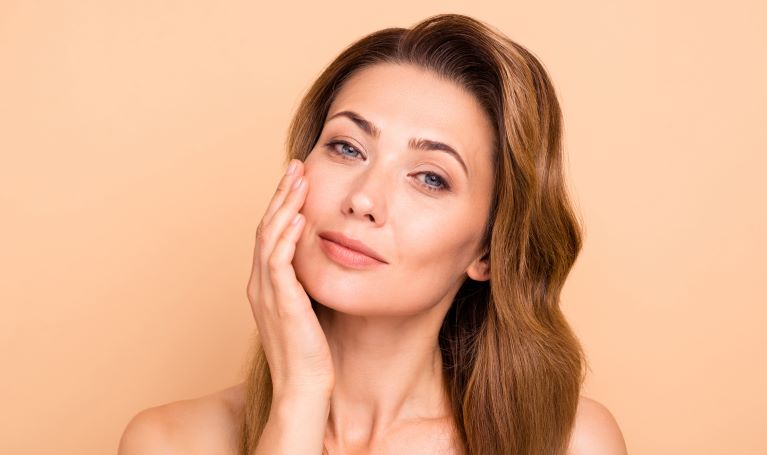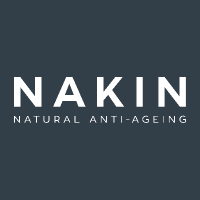Why The Menopause is so Ageing to Our Skin

One of the biggest changes that our skin will ever face is during the menopause. Most of us will see a big shift in the way our skin looks and feels during this time, and although it is completely natural, it is normal to want to keep skin looking as fresh and youthful as possible. Good skincare like our Nakin Anti-Ageing Face Products will help, but to some extent we need to accept and embrace the changes to our skin. Keep reading to explore the ageing effects of menopause on our skin.
Menopause is a natural biological process that marks the end of a woman's reproductive life. It is a complex hormonal transition that affects many systems in our bodies, including our skin. As women age, they experience a significant decrease in the production of oestrogen and collagen, leading to thinning, drying, and wrinkling of the skin. The hormonal changes during menopause can aggravate skin conditions and cause new ones, such open pores, dryness, and dark spots. This post will explore the ageing effects of menopause on our skin and ways to preserve and protect our skin through this transition.
Blog Body: The first and most noticeable effect of menopause on our skin is a loss of elasticity and firmness. Oestrogen is a vital hormone that promotes the production of collagen and elastin, two essential proteins that give our skin its strength and elasticity. With the decrease in oestrogen levels during menopause, our skin loses its natural support structure, causing sagging and wrinkles. Sun damage, smoking, and other environmental factors can also accelerate this process. Therefore, it is critical to protect our skin from harmful UV rays, avoid smoking and excessive alcohol consumption, and follow a healthy diet and lifestyle.
Another common effect of menopause on our skin is a tendency to dryness and dehydration. Oestrogen helps to retain moisture in the skin by promoting the production of hyaluronic acid, a powerful humectant that binds water to the skin. Without enough hyaluronic acid, our skin becomes dry, dull, and prone to itching and scaling. It is crucial to use gentle, non-drying cleansers and moisturisers that contain ingredients such as natural ceramides, hyaluronic acid and plant oils to restore and maintain our skin's natural hydration levels.
Furthermore, menopause can also trigger or exacerbate existing skin conditions such as acne, rosacea, and melasma. Acne, which is common in teenagers due to hormone fluctuations, can also resurface in menopausal women due to the hormonal imbalance. Rosacea, a chronic inflammatory skin condition, can also worsen, causing facial redness, itching, and swelling. Melasma, a condition characterised by dark spots on the face, can also be triggered by hormonal changes. Careful skincare and lifestyle habits can help alleviate these symptoms, such as using gentle and non-irritating skincare products, avoiding spicy and hot foods, and reducing stress.
Another crucial aspect to consider during menopause is the increased risk of skin cancer. Our skin becomes thin and vulnerable, making it easier to damage and prone to skin cancer. Therefore, it is advisable to use broad-spectrum sunscreen with at least SPF 30 daily, wear protective clothing and hats, and limit sun exposure during peak hours.
Menopause is a significant transition that inevitably affects our skin. However, with careful skincare and lifestyle habits, we can reduce the ageing effects and maintain healthy and radiant skin. A healthy diet, regular exercise, stress reduction, and hydration can all support our skin's natural functions and promote collagen production. Embracing menopause as a natural and beautiful process can empower women to take control of their skin's health and well-being.


Leave a comment